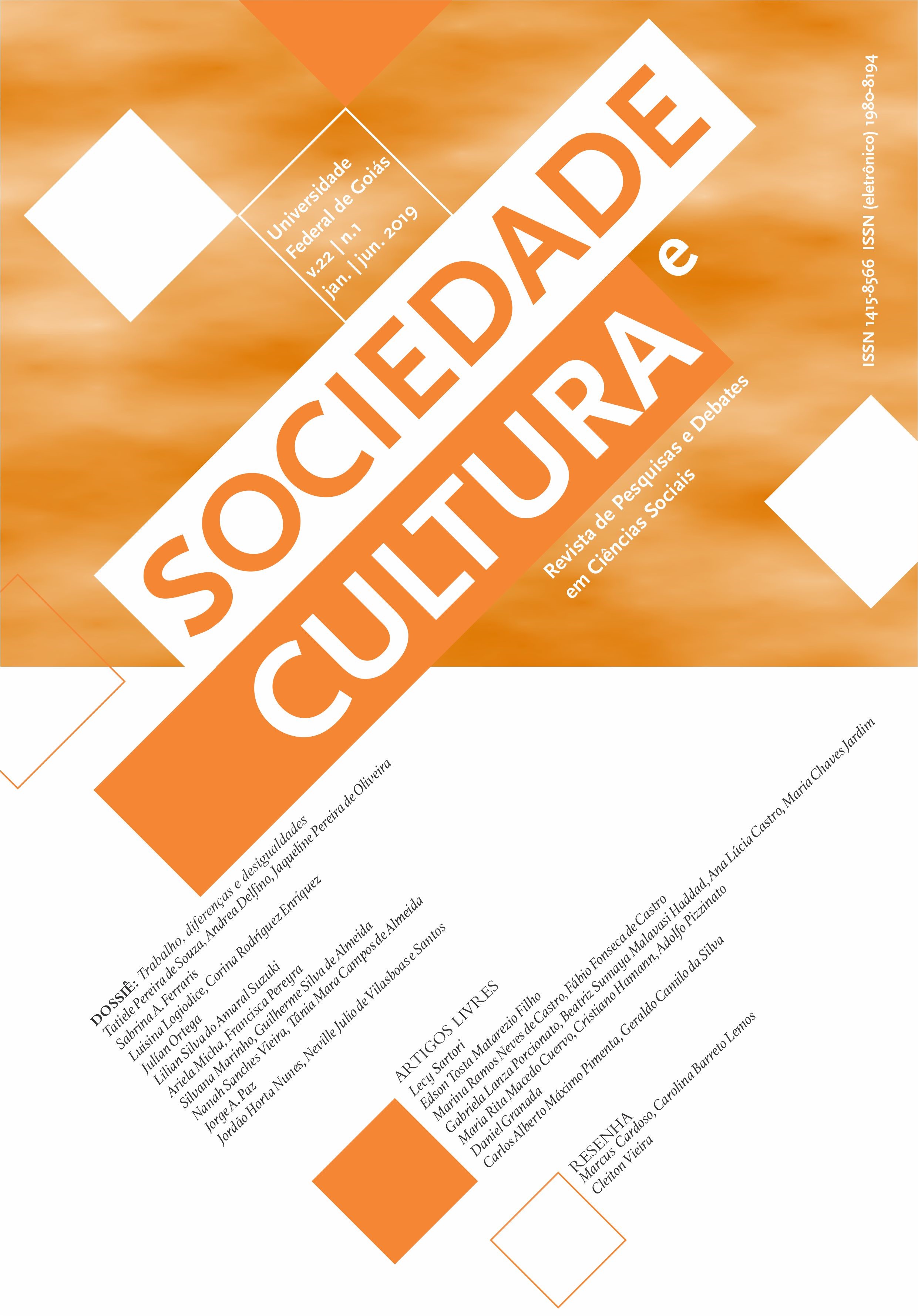Domestic labor and the nanny profession: historical fights and current threats
DOI:
https://doi.org/10.5216/sec.v22i1.57899Abstract
Domestic work, particularly that of babysitting, is scarcely studied and recognized in Brazil. Nowadays, neoliberalism and regression in social and legal guarantees generate strong tension among the most present contingent in this category: Poor black women. In the article, we present research results from Brasília-DF that, based on in-depth interviews, addresses this body, lived in the labor practice of these caregivers, as a space of observation and significance of social relations, distinguished by the intersections of race, gender and class. The body emerges in the data from a historical survey that reveals the complex process of oppression to which they are subjected for generations. In addition, the narratives present the experiences of being a nanny through feelings and physical sensations that range from affection to abjection. Finally, historical struggles of domestic workers are addressed and the current political-economic scenario is problematized as a result of Constitutional Amendment 72/2013.
Downloads
Downloads
Published
How to Cite
Issue
Section
License
Authors who publish in this journal agree to the following terms:
- Authors retain the copyright and grant the journal the right of first publication, the work being simultaneously licensed under the Creative Commons Attribution License, which allows the sharing of the work with acknowledgment of authorship and of the initial publication in this journal;
- Authors are authorized to enter into additional contracts separately, for non-exclusive distribution of the version of the work published in this journal (eg, publishing in an institutional repository or as a book chapter), with acknowledgment of authorship and of the initial publication in this journal;
- Authors are allowed and encouraged to post and distribute their work online (eg, in institutional repositories or on their personal page) at any point before or during the editorial process, as this can bring productive change as well as increases the impact and the citation of the published work (see O Efeito do Acesso Livre).



